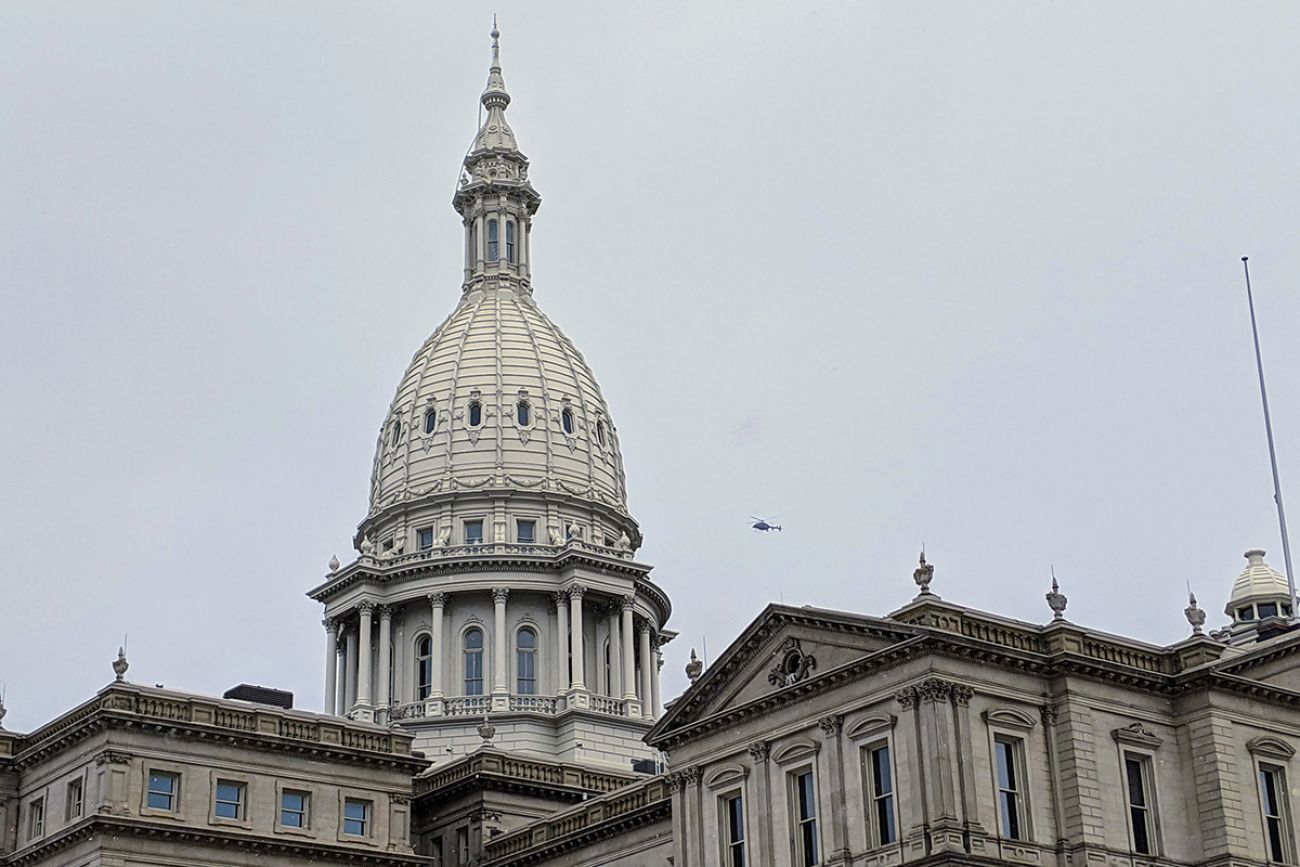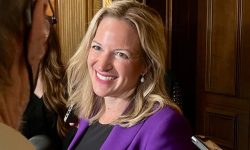Michigan Democrats want to make it easier to give to unions (who give to Dems)

- Democrats-backed legislation would allow unions to collect political contributions from members via payroll deduction
- The legislation would reverse restrictions put in place by Republicans
- Unions typically donate to Democrats and have given big to the party since it took control of Lansing this year
LANSING — Michigan Democrats are advancing legislation that would make it easier for union members to make political contributions — contributions that have largely benefitted Democrats.
Under a pair of union-backed bills, both public and private sector union members would be able to have their contributions to union political action committees — funds used for political activities that are separate from union dues — automatically deducted from their paychecks.
Democrats have pledged to reform the state’s campaign finance rules since the November election. Yet the pro-union bills represent two of the first three campaign finance bills this year to pass out of committee, while no major reform has been introduced.
The absence of major campaign finance reform comes as top Democrats calling for enhanced scrutiny. The push has intensified amid an ongoing investigation by Attorney General Dana Nessel’s office into ex-House Speaker Lee Chatfield’s use of campaign funds and a corruption scandal where another former House Speaker, Rick Johnson, pleaded guilty to accepting $110,000 in bribes while chairing the state’s medical marijuana board.
Related:
- Big money rolls into Michigan Democrats from unions after Right-to-Work repeal
- Michigan doles out millions in secret. Bills to change that may be tough sell
- Despite vows, Democrats do little to improve Michigan government transparency
House Ethics and Oversight Committee Chair Erin Byrnes, D-Dearborn, told Bridge Michigan on Monday that Democrats will soon introduce a package of bills reining in “dark money” and use of candidate leadership PACs — PACs established by officials to raise more money for their like-minded colleagues.
“We want to make sure that we're doing our homework, and that we're getting it right,” Byrnes said.
The pair of pro-union measures would help union PACs collect political funds, most of which they contribute to Democrats. The legislation comes as major unions stepped up spending on Democratic campaigns this spring. Union groups gave a total of $660,000 to state lawmakers and Democratic Gov. Gretchen Whitmer’s associated PACs between Jan.1 and Apr. 20, and 98.6 percent went to Democrats, Bridge previously reported.
Rep. Rachelle Smit, R-Shelbyville, voted against the bills during a committee hearing last week, calling them an effort to “get their political candidate of choice in office and to further benefit the interests of the Democratic Party.”
House Election Committee Chair Penelope Tsernoglou, an East Lansing Democrat who sponsors one of the bills, contends union donations benefit “pro-worker” candidates regardless of party affiliation. She said “we don’t have enough Republicans who are pro-worker.”
“It will benefit campaigns that are pro-worker. I think that's really the heart of it,” she said. “If those are Democratic campaigns, then that’ll be who benefits.”
During a committee hearing last week, multiple union members offered similar statements. At one point, Rep. Jaime Churches, D-Wyandotte, asked Earl Cox, president of the Amalgamated Transit Union in Kalamazoo, whether he believed “political donations have the potential to influence the way the candidates govern.”
“No, I do not,” Cox responded.
Democrats argue the pro-union legislation would simply right a past wrong by removing Republican-backed restrictions that made it harder for workers to donate. The laws were signed into effect by former Republican Gov. Rick Snyder, who also signed the state’s Right-to-Work law Democrats recently repealed.
Public sector unions were banned from collecting PAC contributions via automatic payroll deductions under a 2012 state law, according to a House Fiscal Agency analysis of the proposed bills.
In 2015, the state Legislature further limited private sector unions from utilizing a company’s payroll deductions while allowing private companies to deduct corporate PAC contributions from employees’ paychecks.
“(Republicans) succeeded in silencing many of these workers’ voices for the past 11 years,” Tsernoglou said during the committee hearing last week.
“Allowing workers to affirmatively opt in to PAC payroll deductions to the organizations to represent their interests simply levels the playing field, when corporations can use the same system of deductions to solicit donations to their corporate PACs.”
The Democrats-backed House bills would remove both restrictions and allow union members to once again opt in the automatic payroll deduction programs. Under the bills, unions would still have to negotiate with employers to allow for payroll deductions.
Public resources — such as fees associated with administering the deduction program — would also be allowed to be used for payroll deductions as long as unions reimburse the costs.
That doesn’t make it right, said House GOP spokesperson Jeremiah Ward.
“House Republicans don’t believe that the state taxpayer dollars, local taxpayer dollars should be used to fund campaign activities,” he told Bridge on Tuesday.
Employers are already allowed to deduct income tax withholdings, Social Security, overpayments and more from employees’ wages and benefits under federal and state law. They can also deduct payments for health benefits and charitable donations with employee consent.
The bills represent the latest Democratic effort to advance labor-friendly legislation after repealing the state’s Right-to-Work law in March. The repeal, celebrated by major unions, eliminated a decade-old law that allowed employees to opt out of paying union dues but still enjoy the benefits.
Democrats are also pushing bills to give tax credits to those who pay union dues and allow teacher evaluations to be negotiated at the district level and give teachers more say in classroom assignments.
See what new members are saying about why they donated to Bridge Michigan:
- “In order for this information to be accurate and unbiased it must be underwritten by its readers, not by special interests.” - Larry S.
- “Not many other media sources report on the topics Bridge does.” - Susan B.
- “Your journalism is outstanding and rare these days.” - Mark S.
If you want to ensure the future of nonpartisan, nonprofit Michigan journalism, please become a member today. You, too, will be asked why you donated and maybe we'll feature your quote next time!




